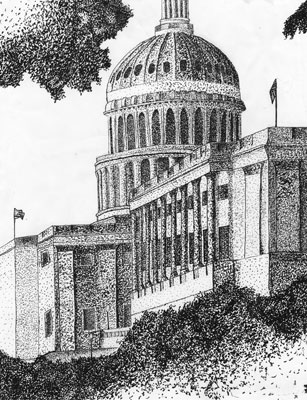All Nonfiction
- Bullying
- Books
- Academic
- Author Interviews
- Celebrity interviews
- College Articles
- College Essays
- Educator of the Year
- Heroes
- Interviews
- Memoir
- Personal Experience
- Sports
- Travel & Culture
All Opinions
- Bullying
- Current Events / Politics
- Discrimination
- Drugs / Alcohol / Smoking
- Entertainment / Celebrities
- Environment
- Love / Relationships
- Movies / Music / TV
- Pop Culture / Trends
- School / College
- Social Issues / Civics
- Spirituality / Religion
- Sports / Hobbies
All Hot Topics
- Bullying
- Community Service
- Environment
- Health
- Letters to the Editor
- Pride & Prejudice
- What Matters
- Back
Summer Guide
- Program Links
- Program Reviews
- Back
College Guide
- College Links
- College Reviews
- College Essays
- College Articles
- Back
The Implications of Structural Bias
Nowadays, it is hard to find news that is truly impartial and unpartisan. Motivated by both strong convictions and generous endorsements, the media of the United States of America, the disseminators of information, all seem to be partial to one side of the political realm. Because it is difficult to stand on a foundation of understanding of information when the information is precariously tilted and slanted either to the left or right, America may face the problem of dealing with an uninformed and cynical public. For my entire life, this has been my experience with media, and it is shocking to me (equally as shocking as the modern-day political partiality of the media must be to some) that things were not always this way. There seems to be a general consensus among older folk that, once, the news was impressively impartial. Now, almost every publication or news channel can be accusingly, and correctly, labeled as liberal or conservative. What happened?
It is unsettling, and odd, to think that we are almost always on the receiving end of slanted information. We are accustomed to it, born and raised in a culture of marketing and advertising, and no stranger to skepticism and cynicism. The democratization of the internet also exacerbates this mindset because it exposes us to more “bad” information, and again and again the responsibility is ours to interpret and judge the quality of news for ourselves. So, at least my generation is well equipped, as we have been raised in an atmosphere saturated with “prior warning”.
Unfortunately, however, I write today to make the proposition that we, the general public, are the victims of a much larger, and more dangerous bias than that of ideology. At least ideological bias is ostentatious, easily recognizable to most, and often, it can’t help but arouse skeptical analyses. Structural bias in the media is much more widespread, but paradoxically less addressed, and less easy to discard, as it serves as the fundamental base from which we interpret information.
The term “structural bias” refers to the form in which information is presented through the media-- I suggest, it is presented in the form of dramatic narratives. Disproportionately and absurdly so. Playing on our inherent partiality to oral traditions, and stories, both liberal and conservative news manipulates stories to be more entertaining. In a television context, the news networks do this to compete with the entertainment networks, to get people to view the news instead of the thousands of other channels available. In turn, news focuses on horror, scandal, misfortune, and memorable pieces of witty dialogue. The media’s insistence on choosing “captivating” but petty stories along with casting stories in an entertaining light compromises the quality of the information that we receive. (Though it admittedly makes for good, spirited coffee shop conversations). I’m a sucker for entertainment just as much as the next person is, but priority and factuality should not be put on the back burner. This phenomenon creates a context of constraint for the public. When media culture focuses on what is entertaining, more important issues, or more important parts of issues all have the tendency to be overlooked.
Structural bias, then, is just as exploitative as ideological bias, and I implore you to be aware of it. It is evident in both the choice, and the articulation of stories in the media. Be not afraid to cock your eyebrow. This dominant code of media form dictates the way through which we approach and understand popular culture! And, let’s be honest-- the principle of entertainment does not serve as an instructive or an elucidative form. Structural bias of the media is dangerous not just through negligence of fact and priority, but in that it may contribute to improper mobilization of people, resulting in faction or in violence. We need a return of honest, impartial media. Structural bias needs to be recognized, exposed, and discredited.

Similar Articles
JOIN THE DISCUSSION
This article has 0 comments.
myself a liberal conservative. I don't think anyone OS totally left or right.
myself a liberal conservative. I don't think anyone OS totally left or right.
